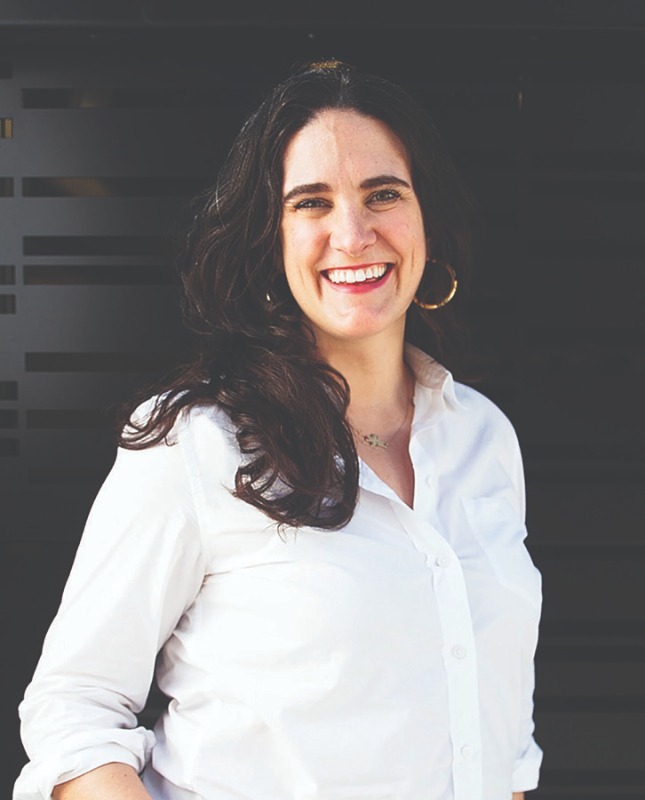
When Mitchell Scholar Micaela Connery arrived at UCD Michael Smurfit Graduate Business School in the autumn of 2016 to embark on her MBA, she already had a very clear idea as to what she hoped to achieve. Growing up, though Micaela moved around the eastern part of the US with her family because of her father’s job, she always considered Rhode Island home and spent summers there with a large extended Irish American family of Flynns, Connerys and O’Connors that included her cousin Kelsey. Born three months apart, the girls were close.
“Our moms, Keely and Chyleene, are sisters,” says Micaela. “My mom just digitised a bunch of our family home videos, and Kelsey and I are together in so many of them.” Though Kelsey needed 24/7 support and lived with multiple physical, developmental and medical disabilities – using a wheelchair to move around and modified sign language to communicate – when the cousins were elementary school age, they went to the same summer camps. “Initially there weren’t any inclusive camps,” explains Micaela, “but our moms finagled us into a sailing camp together and then my aunt Chyleene started an inclusive camp for kids with and without disabilities that we went to together.”
While Kelsey began her education at a special school, thanks to Chyleene’s work advocating for her daughter, she later moved to a mainstream school and participated in the same church and social activities as Micaela. “Kelsey was a real pioneer,” says Micaela. “She was in inclusive settings throughout her childhood and teenage years, even with her support needs. She was an advocate in her own right, and her parents and sisters were right there with her. When people said Kelsey couldn’t do X, Y, or Z, their response was, ‘Why? Let’s figure out how to build the structure so that she can participate.’ Before Kelsey was born, my aunt had worked in disability services as both an educator and a direct support provider so she knew this world very well. She was a remarkable advocate and I was a witness to that. Even now that Kelsey has passed [she died in 2018 at the age of 31], she continues, recognising that their advocacy to make communities more accessible wasn’t just for Kelsey, but for other people like Kelsey or with other disabilities. I think that’s profound.”
“Smurfit was where I put the business plan together, and once I graduated in 2017 I was ready to launch the business full time.”
From her closeness to Kelsey, Micaela understood from a young age that it was not Kelsey’s disability that was the problem, but rather the way spaces, places and experiences were designed that made things difficult for her. In 2002, at the age of 15, Micaela founded Unified Theater, a school-based arts programme for students with disabilities, which focused on inclusion and accessibility.
“I could see there was an option to do things another way that would make them possible for people like Kelsey,” explains Micaela, “and I felt driven to address this important, interesting and exciting work. It’s both a need and an opportunity to think about how we redesign and recreate our societies, our structures, our buildings, our approaches, so that everybody can be part of them. There’s a lot of creativity and innovation in that.”
After college, Micaela spent five years running Unified Theater full-time and scaled the organisation successfully. But by 2014 she felt it was time to move on. She didn’t know exactly what she wanted to do but decided to go to graduate school and take a couple of years to explore new possibilities. She knew that she wanted to stay working in the social impact/non-profit sector or work in government to achieve something meaningful. Around this time, two things happened which helped Micaela hone her focus.
The first was that Kelsey’s parents hit roadblock after roadblock in their endeavours to secure inclusive living for their daughter. Eventually they found something that would meet Kelsey’s needs, but were not able to achieve anything in relation to bigger vision. “That was shocking to me,” explains Micaela, “because they had been able to do so much already, but housing was a much bigger barrier. Simultaneously, I was running an inclusive youth programme, and I was invited by the students who had recently graduated to a hearing at the Connecticut State Capitol about how few opportunities for community inclusion they had once they became adults. All of the programming, including the one I was running, dropped off a cliff.”
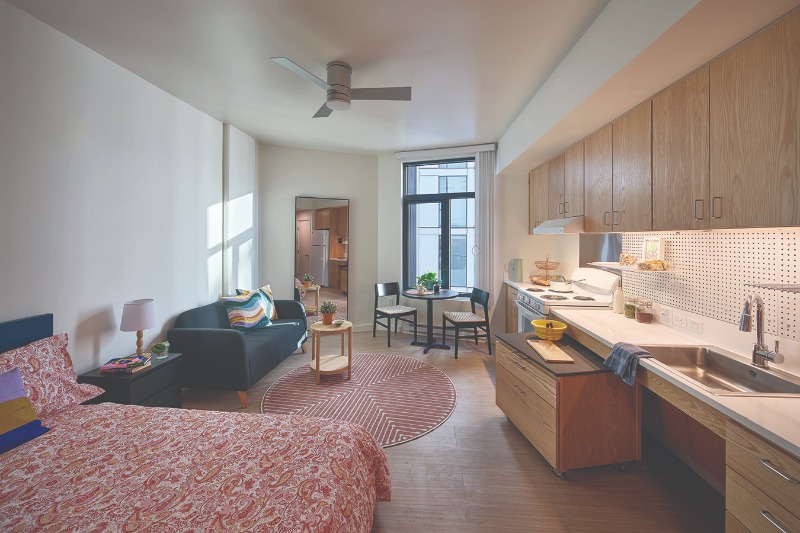
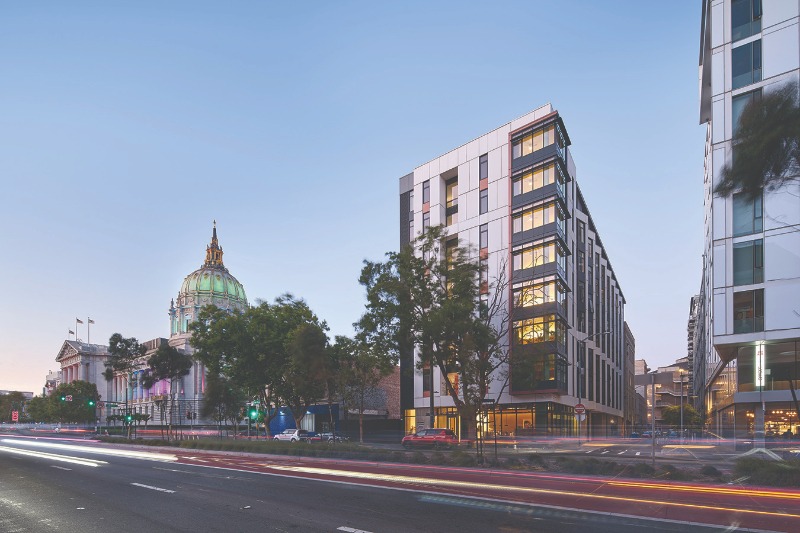
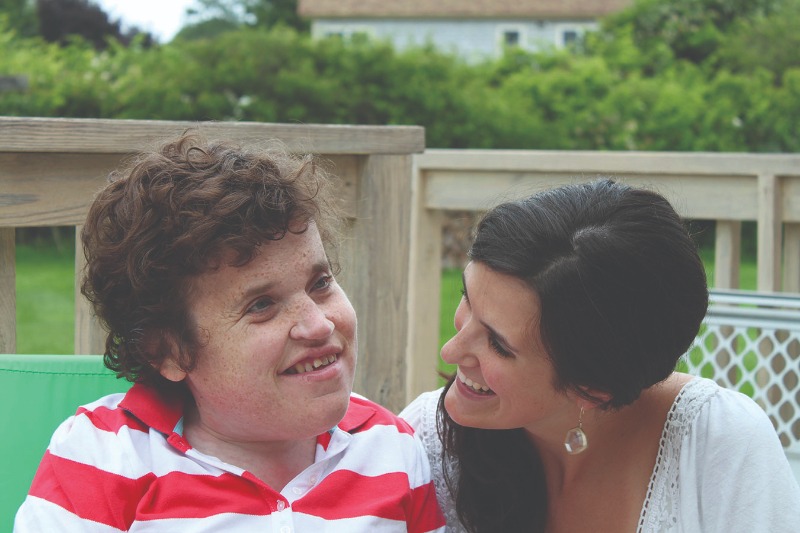

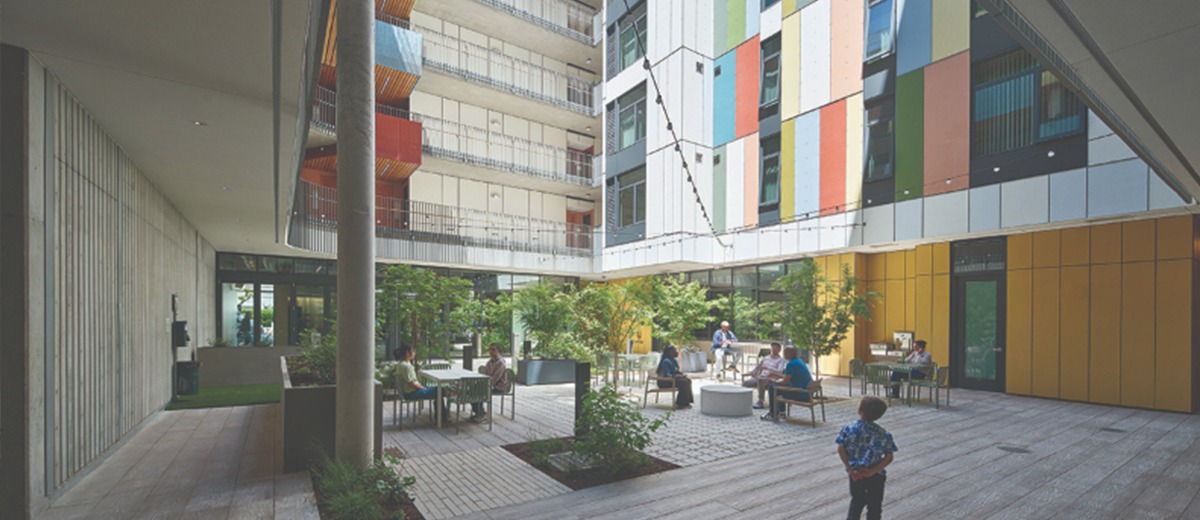
It was then that Micaela decided that housing – such a fundamental part of life for every person – was the endeavour to which she would devote her energies. But she was focused on going to graduate school, and it was not part of her plan to start another organisation. She felt sure that there was a government agency or non-profit already in existence addressing the issue – she could go and work for that. But during her time at the John F. Kennedy School of Government at Harvard University, through carrying out research, case studies and site visits, she came to realise that nobody had either solved the problem or was making any big dent in it.
“That was what led me, with some pushing from my mentors, to start The Kelsey. I kept saying, ‘I don’t want to start another organisation – we have so many non-profits already.’ But what little stuff there was out there was not inclusive, not integrated, and not affordable. Hearing from different folks I respected in the housing and disability world who said, ‘Not only is this needed, but you should go do it,’ is what convinced me to pursue this path. I could see a gap, and an opportunity to build something new.”
In her last year at Harvard, Micaela developed the core idea of The Kelsey through Kennedy School’s Social Innovation and Change initiative. Her final project looked at the theory behind the entity she was formulating and how she would approach it. At Smurfit, she developed the operational side – how she would build the company, where it would be based, what its financing structure would be, what its first project might look like.
“Smurfit was where I put the business plan together,” says Micaela, “and once I graduated in 2017 I was ready to launch the business full time. Kelsey was my co-founder. We got our first round of funding in March 2018, the month she passed away.” Her time in Ireland was not all work, though, because while she was studying at Smurfit, Micaela met her future husband and fellow American, Zach. The couple now have a one-year-old son, Wicklow.
The Kelsey’s business approach is threefold: it creates its own homes, assists other projects and non-profits to develop homes through technical assistance, and enables cities and states to develop disability-forward housing through advocacy for policy change, advice on funding and direct project support. Its open-source resources, sharing development strategies, inclusive design standards and resident services models, have been utilised across the United States and further afield.
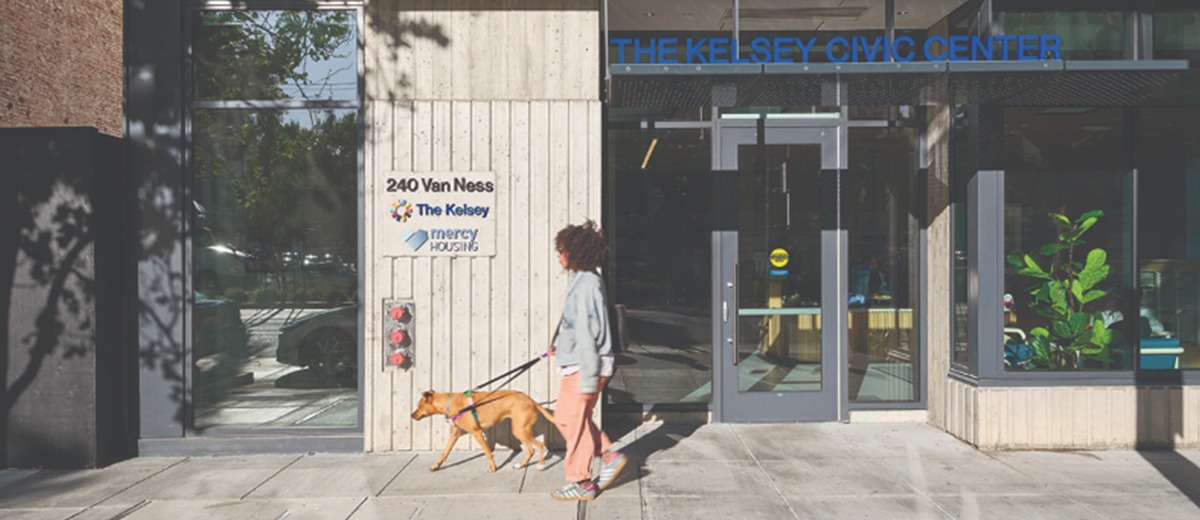
The Kelsey is funded through philanthropic donations and revenue earned from providing technical assistance alongside fees from developments. Each community is a separate entity, built with a mix of public and private finance, with operating expenses funded through rents. The Kelsey now has two buildings open and operating in the Bay Area of San Francisco, providing 227 homes between them. Another community is under development in Birmingham, Alabama; others are at the exploratory stage. Residents pay rent commensurate with their income, ranging from a few hundred dollars a month to a couple of thousand. Each building has an inclusion concierge to assist residents.
Notably, the aesthetic standard of The Kelsey’s developments is high. “There’s dignity in beauty and good design, and there’s also a value expression in that,” explains Micaela. “A disabled advocate who works for one of our funders says there’s a misconception that we can’t have nice things. I noticed when I toured different housing communities that the privately funded ones paid for by wealthy families were always very nice, but anything ‘affordable’ with government participation was missing the bells and whistles and the design standards were lower. Our projects are feasible, but very intentionally show that you can build beautiful, well-designed disability-forward housing that is accessible, that is affordable.
The ambition is to support 20,000 homes by 2030, touching communities across the US.
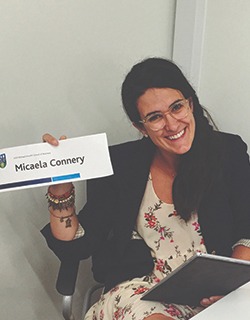
“After eight years, I think there’s now a broader acceptance of and buy-in to the concept of inclusive, affordable, and accessible housing. People know these things matter and they can happen. But I wouldn’t say the structural conditions have made it easier to create them. In the US, we are currently in a challenging policy environment. There have been some good things recently – such as the expansion of affordable housing tax credits – but set against that services for people with disabilities are more strapped and funding for public housing is more limited. Housing and construction costs are going up. So structurally on the development side things are more difficult, but systemically on the movement side, things are more opportunity-filled.”
As part of her final capstone project at Smurfit, Micaela met with some of the Irish organisations working on disability-forward housing and the affordable housing gap. She doesn’t rule out working on an integrated community housing project in Ireland in the future.
“It would be a dream to create a partnership to build something in Ireland,” she says, “I think Ireland is dealing with some of the similar questions that we have dealt with in the US around the outdated ‘care’ type of framework, building more facility-based options for adults with disabilities to solve and serve. We don’t want unintentionally to create new institutions. And there are similar dynamics in Dublin and San Francisco, given the huge growth of tech and the money that has brought to the city, but the housing crisis that followed in its wake.”
Eight years on from founding The Kelsey, Micaela says one of the aspects of the work she enjoys most is the relationship-building with partners, because it has become clear that this is the way to achieve scale. Fundraising is the most challenging, but she finds it “incredibly satisfying” when The Kelsey is successful in securing new partners who enable it to bring its work to new levels.
The ambition is to support 20,000 homes by 2030, touching communities across the US, whether that’s through homes that The Kelsey creates itself, or through providing technical assistance or support to achieve policy change, to others.
“Our hope is that in five years there is disability-forward, accessible, inclusive, affordable housing existing everywhere using The Kelsey’s approach. I hope I’m not still having to explain to people why people with disabilities should be in integrated communities with people without disabilities. We still have that discussion, and I find it exhausting and frustrating. So hopefully in five years, because of what we’ve made possible, there will be belief and understanding that people with the level of needs that Kelsey had, which were significant, can live – with supports – in community-based housing. And that’s true of people with any type of disability. My other hope is that in 2030, people just agree that affordable, accessible, and inclusive housing is the right kind of housing to build.”
